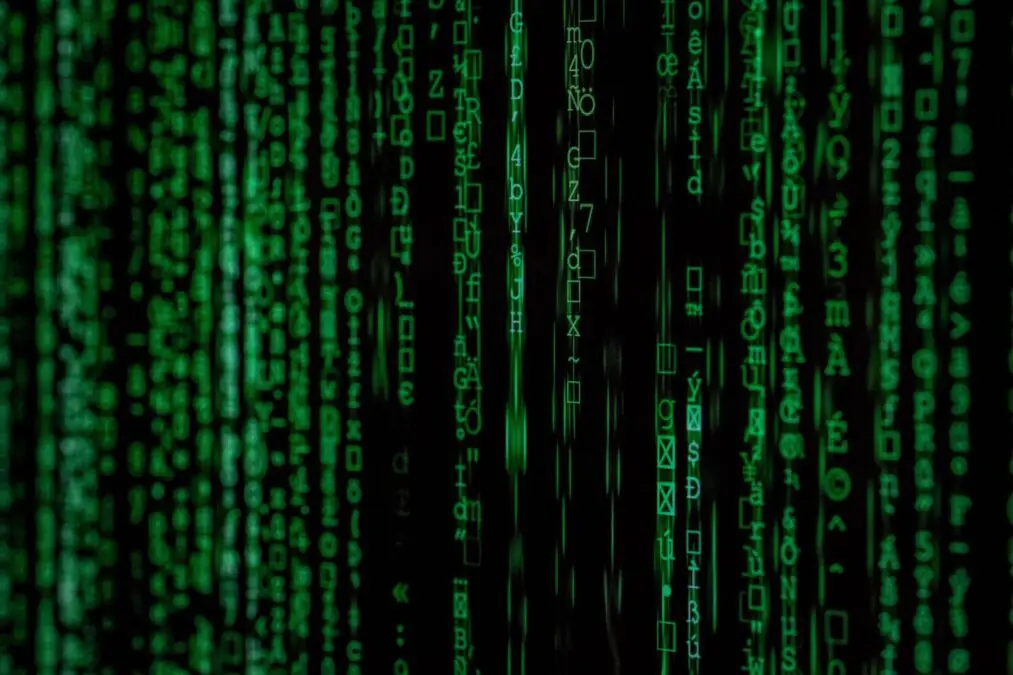The meaning of the presence of prayers – requests in the prayer practice of such a fatalistic religion as Islam, seems completely incomprehensible. According to Islamic doctrine, the afterlife of a person is predetermined by Allah. Even before his birth, a person is given a list of his future affairs, under which he can only silently sign and humbly accept. “They tied a bird to each of you” (K.17:14), i.e. what she portends is fate. Arabs – pagans believed in fate, fate and determined it by the flight of a bird (auspices). Mohammed could not rid himself of these pagan prejudices and decided to put into the mouth of God the words of a superstitious Arab. A “faithful” Muslim humbly expects what Allah will deign to prepare for his obedient slave, whether it be good or bad: “Neither good nor bad will befall us in the earthly world, except for what Allah has ordained for us. We are humble before His predestination” (K.9:51). At the same time, Islam still recognizes relative freedom of will for a person: “If your Lord, O prophet, wished, then people would have one religion, and they would obey Allah by their nature, like angels, but the Almighty did not wish this, but gave them freedom of choice” (K.11:118), “Allah willed… that you have the ability to choose” (K.16:93). At first glance, there is a certain similarity between the Qur’anic quotations and the Christian doctrine of free will. But it’s not. In Islam, it is believed that a person makes his choice from a list of options, each of which is already predetermined by Allah. That is, a person himself chooses his life path, whether it is: life – death, faith – disbelief, light – darkness, good – evil, but all these options are already predetermined by Allah, or, which is the same, are his will. “We are running from the predetermined to the predetermined,” said Omar ibn Khattab.
This is best illustrated by the case of Ali. “Once Khazret Ali (May Allah Almighty be pleased with him!) Was resting in the shadow of a wall that was about to collapse. Suddenly he stood up and moved into the shadow of another, much more secure wall. The companions immediately asked him: “O Ali! Are you avoiding what Allah has prepared for you?” He answered them: “I seek refuge in the power of Allah from the fate that he has prepared for me, that is, I run away from one fate in order to achieve another. If the wall came down on me and I was injured, then such would be the immutable sentence of Allah and His predestination, and since I left the dangerous place and avoided mutilation, then it was allowed for me and, therefore, such was again the immutable sentence. Allah and His predestination.
That is, wherever a person goes, he everywhere falls into the network of Allah’s predestination: “Not a single misfortune will befall the servant of Allah without His permission and predestination” (K.64:11). The freedom of a person manifests itself precisely at the moment of choosing between already predetermined paths. True, for some reason, Muslims do not associate such manifestations of evil as: drug addiction, alcoholism and prostitution with the predestination of Allah. Although, according to their own theory, everything goes to this. Even the Quran says about this: “No trouble will strike the earth: drought, lack of fruits, etc., and will not strike your souls: sickness, poverty, death, etc., unless it was predetermined by Allah … before We bring it to life on earth and in your souls. The predestination of trouble, the knowledge of it for Allah is very easy and does not present any difficulty ”(K.57:22). Of course, if we take the current situation, then, indeed, it turns out that a person himself makes a choice, for example, whether to sin with a harlot or not. But if we return to the origins of this sin, i.e. when there was no prostitution yet (we are considering classical prostitution, and not priestly or any other), we will see that the first woman who decides to do this still makes some choice from several options (to choose this way of earning money or no, even if the decision is not made by her), of course, already predetermined by Allah. Thus, we get the conclusion that the very appearance of such a variety of sin as prostitution is the predestination of Allah, i.e. his will. And although Muslims themselves recognize this as absurd, the Qur’an explicitly says that it was Allah who commanded some people to do wickedness so that they strayed from the straight path, and for this he himself destroyed them. And this destruction of people, firstly, was predetermined by Allah, and secondly, it was an expression of his will: “And when We, according to Our predestination (underlined – author), recorded in the Preserved Tablet (al – Laukh al – Mahfuz) , wished to destroy the inhabitants of the village in justice and according to Our will. We gave a command to those endowed with blessings in it, and they did wickedness and strayed from the straight path, and others thoughtlessly followed them, erring. Thus, they all deserved punishment, and We destroyed this village completely ”(K.17:16).
There is, however, another attempt to resolve this providential problem created by Muhammad. Some of the representatives of Muslim publicists (Yasin Rasulov), trying to somehow hush up this inconvenient incident with predestination, explain it in the sense of the establishment (predestination) by Allah of the laws of the universe. That is, predestination (predestination) is considered the inevitability of some law of nature. For example, a person decides to throw himself into an abyss. He jumps in and dies. His death in this case is considered predetermined by Allah by virtue of the laws of attraction established (predetermined) by him. That is, a person makes his own choice (manifestation of free will) and is broken due to the inevitability of the laws of nature established by Allah (predestination). Also, if he jumps there with a parachute, his flight is also predetermined by Allah by virtue of the relevant laws. If he walks on the ground, his movement is predetermined due to the inevitability of the laws of locomotion, etc. But to go, run or jump – the decision is made by a person.
It must be assumed that a person flying on a rocket overcomes the predetermined laws of attraction by virtue of other laws of mechanics predetermined by Allah. The bomb in Hiroshima burned everything alive due to the predetermined inevitability of the laws of nuclear physics. Alcoholic beverages knock a person down due to the predetermined inevitability of the laws of the effects of alcohol on the human body. LSD is maddening due to the corresponding processes predetermined by Allah, etc. It turns out that a person makes a decision, and Allah implements it. In this case, the blame falls on both, and no one has the right to take on the role of judge in relation to the other.
In short, such schemes can be developed indefinitely, but where is the truth? And the truth has long since been revealed to the world in the words: “And God created man … in the image of God … and in the likeness of God he created him” (Gen. 1:27; 5:1). That is, man was created holy and striving for goodness and absolutely free, as his Creator is free. And history develops not in the way God predetermines it, but in the way that man himself “predetermines” it, in accordance with the use of free will by him.
By the way, Islam teaches that in case of unauthorized use by a person of free will, which is entirely a gift of Allah and belongs only to him, he deprives a person of this gift and acts with a sinful weak-willed being at his own discretion.
Which one? One can only guess. Since “if a person uses it (the gift of free will – ed.) incorrectly, does not fulfill his high destiny (presumably, he is not a Muslim – ed.), then the existence of such an individual loses all meaning”93. That is, the sinner is deprived of free will and is quietly thrown into the garbage heap of mankind as hopeless and “unfaithful.” Thus, the relative free will of a person is impermanent and periodic! And this despite the fact that Islam endlessly repeats about some kind of repentance, which in fact concerns exclusively Muslims, because “The one who accepts repentance is At – Tawwab (80th name)” – Allah: “Then, when you repented of your sin and asked Allah has forgiveness for him (calf), We have spared and forgive you ”(K.2:52). For everyone else, repentance lies solely in the adoption of Islam. But according to the same Koran, repentance is impossible for sinners, “For whom Allah has deprived of His mercy and led away from the straight path, you will never be able to guide him to the straight path” (K.4: 88). He can only guess why the merciful and merciful Allah, who, “if he wished, could direct every soul to the straight path” (K.32:13), nevertheless predestined them to be led astray from this straight path and “be kindling for hellfire”? (K.3:10) As a result, “we were convinced that Allah is powerful over us, wherever we are on earth, and we will not be saved from His predestination (sub. – ed.) by fleeing to heaven” (K.72 :12).
This is not enough. According to Islamic ideas, Allah is the creator of all events on earth (both positive and negative), as well as all the deeds and deeds of every person and any creature (both good and evil) up to this moment. That is, being in fact the creator of good and evil, he is in the literal sense the incessant creator of the history of mankind. “World history is an unceasing epiphany, even the victories of the infidels happen according to the will of God”94. “God not only maintains the world, but precisely creates it every moment, creates it again and again, so that in each subsequent moment any thing, any being, each person is different, different, different. The created world does not even have a relative ontological status. Not only through providence, but through the permanent creation itself, he is dependent on God. Between the action and its consequences, God establishes only a connection of habit, routine, but He is free at any moment to break this connection, to change everything. Likewise, human actions do not have any internal ontological reality: “God created both you and the work of your hands” (K.37:96), says the Koran, and Sunni Islam literally understands these words. God directly creates every action of man, both in its essence and in its moral content. That is, any sin and any evil, in principle, can be written off to the will of Allah, who contributed to this. The fact that both good and evil are predestined (predetermined) by Allah is stated in the Qur’an in plain text: “Thus they lose their peace of mind in earthly life, which comes from faith in Allah predetermined (good and evil)” (K.22:11). This is also confirmed by Islamic publicists: “Allah created both the good that He approves and the evil that He disapproves of. Those who believe that Allah created only good, and evil was created by Shaitan (Satan), are mistaken, since there cannot be “two Creators”. Both good and evil are created by Allah.
Notes:
92.Ali Apsheroni. The Essence of the Islamic Worldview.httr://scbooks.shat.ru
93.Ali Apsheroni. The Essence of the Islamic Worldview.httr://scbooks.shat.ru
94.Eliade M. History of faith and religious ideas. Volume 3: From Mohammed to the Reformation. Chapter 33: Mohammed and the Rise of Islam. http//www/gumer.info/
95.A.D. Redkozubov. Moral requirements for the individual in Islam and Christianity: a comparative analysis. https://rusk.ru/
96.Prophets. True faith is the faith of our ancestors. . ru/Server/Iman/Maktaba/Tarikh/proroki.dos
Source: Chapter 8. Rites in Islam – Unexpected Sharia [Text] / Mikhail Rozhdestvensky. – [Moscow: b. i.], 2011. – 494, [2] p.
Photo credit: Markus Spiske / unsplash







